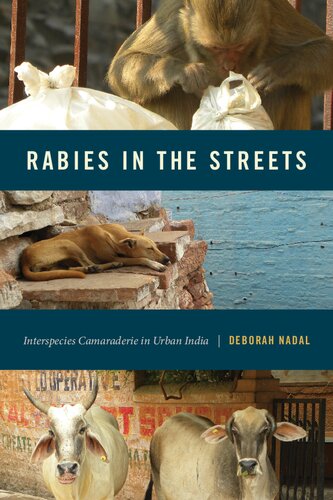

Most ebook files are in PDF format, so you can easily read them using various software such as Foxit Reader or directly on the Google Chrome browser.
Some ebook files are released by publishers in other formats such as .awz, .mobi, .epub, .fb2, etc. You may need to install specific software to read these formats on mobile/PC, such as Calibre.
Please read the tutorial at this link: https://ebookbell.com/faq
We offer FREE conversion to the popular formats you request; however, this may take some time. Therefore, right after payment, please email us, and we will try to provide the service as quickly as possible.
For some exceptional file formats or broken links (if any), please refrain from opening any disputes. Instead, email us first, and we will try to assist within a maximum of 6 hours.
EbookBell Team

4.0
26 reviewsFound in two-thirds of the world, rabies is a devastating infectious disease with a 99.9 percent case-fatality rate and no cure once clinical signs appear. Rabies in the Streets tells the compelling story of the relationship between people, street animals, and rabies in India, where one-third of human rabies deaths occur. Deborah Nadal makes the case that only a One Health approach of “interspecies camaraderie” can save people and animals from the horrors of rabies and almost certain death.
Grounded in multispecies ethnography, this book leads the reader through the streets and slums of Delhi and Jaipur, where people and animals, such as dogs, cows, and macaques, interact intimately and sometimes violently. Nadal explores the intricate web of factors that bring humans and animals into contact with one another within these urban spaces and create favorable pathways for the transmission of the rabies virus across species. This book shows how rabies is endemic in India for reasons that are as much social, cultural, and political as they are biological, ranging from inadequate sanitation to religious customs, from vaccine shortages to reliance on traditional medicine.
The continuous emergence (and reemergence) of infectious diseases despite technical medical progress is a growing concern of our times and clearly questions the way we think of animal and environmental health. This original account of rabies challenges conventional approaches of separation and extermination, arguing instead that a One Health approach is our best chance at fostering mutual survival in a world increasingly overpopulated by humans, animals, and deadly pathogens.